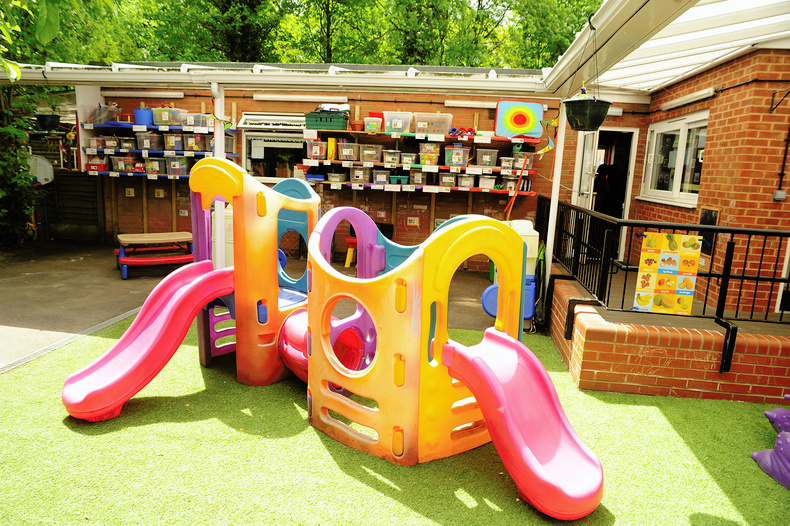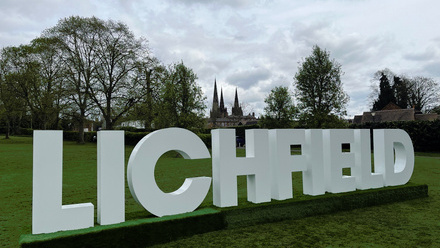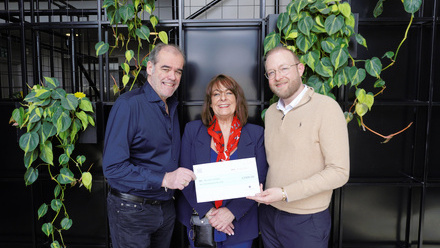Nursery receives advice on improvement areas thanks to free business growth assessment

Tender Years Day Nursery, based in Solihull, is ready to tackle its energy costs while reducing its carbon footprint after receiving a free assessment from the Business Energy Advice Service (BEAS) run by the Business Growth West Midlands (BGWM)
By participating in the BEAS programme, Tender Years received expert advice on key areas for improvement. The nursery plans to act upon the recommendations by installing an air conditioning system with reverse heating and replacing traditional lighting with LED upgrades, utilising match funding, while replacing white goods with more efficient models. Experts found Tender Years could achieve annual savings of more than £2200 and cut two tonnes of carbon dioxide equivalent greenhouse gas emissions per year as a result.
Lisa Whitehouse, Tender Years owner, said: “We were facing a significant increase in our gas tariff after our fixed rate came to an end so the idea of making energy efficient improvements appealed. We agreed to have the survey and were pleasantly surprised with the recommendations and resulting savings we could achieve.
“Having 50 per cent match funding was a great opportunity to make these savings a reality. We needed to find ways to save money, and this also meant reducing our CO2 emissions, so it seemed like a win-win for us.”
Tender Years was opened in 1990 by Mary and Ged Meechan before being taken on by their eldest daughter Lisa Whitehouse in 2008.
Accommodating up to 74 children in total, the nursery offers an experienced team who aim to ensure every child is “happy, contented and achieves their full potential”.
Tender Years applied to the BEAS Energy Intensive programme as they were seeking professional advice on reducing energy consumption and costs plus support in reducing their carbon footprint.
Faced with a gas bill doubling in cost when a fixed rate period ended, the business was looking for energy saving implementations and grant funds to support the changes.
BEAS was launched to provide small-to-medium enterprises (SMEs), who qualify by paying business rates within the West Midlands Combined Authority region, with the tools, insights and funding needed to reduce energy costs and carbon emissions.
After registering online, Tender Years was referred to delivery partner Aston University, who conducted a free energy assessment, which looked at equipment, lighting and heating changes to pinpoint areas to implement efficiencies.
Tender Years used a gas boiler to heat its premises, with its main electricity costs going on lighting and kitchen appliances.
The audit recommended that the business invest in an air conditioning system with a reverse heating function, to cut the use of gas heating and manage the temperature more efficiently throughout the year.
By working with BEAS, businesses like Tender Years can apply for grant funds from £1,000 to £100,000 to invest in energy improvement measures, administered by the local authority.
It is estimated that through Tender Years installing the air conditioning system, with half the costs potentially being covered with a grant accessed through BEAS, along with the introduction of LED lighting will result in a significant reduction in energy consumption and drop in energy costs.
The BEAS report also recommended replacing fridge, freezer and dishwasher units with more modern appliances, which have increased efficiency and reduced energy consumption. In total, Tender Years could achieve annual financial savings of £2218 and cut 2.05 tonnes of carbon dioxide equivalent greenhouse gas emissions by implementing the report recommendations.
“Installing an air conditioning system with reverse heating at a business like Tender Years provides year-round comfort, offering cooling in the summer and heating in the winter. It is energy-efficient, as modern systems are designed to use less energy, and it enhances indoor air quality by filtering out pollutants and allergens.
Precise temperature controls create a pleasant environment and produce fewer emissions compared to traditional heating methods. Installing LED lights at business premises offers numerous benefits as they consume significantly less electricity than traditional lighting, which reduces energy bills, and have a long lifespan, minimising maintenance and replacement costs.” – BEAS delivery partner.
During 2024 the BEAS programme conducted 922 detailed energy assessments and provided businesses with recommendations to save close to 33,000 tonnes of carbon emissions, the equivalent of driving 82 million miles in an average petrol car.
The BEAS goal for 2025 is to reach more West Midlands businesses, strengthen the support for SMEs by expanding the network and resources and continue contributing to the nationwide push for net zero.
If you are an SME looking to reduce your energy bills, or adopt greener practices, BEAS encourages you to get in touch and join the movement for sustainability and cost efficiency.
To register or to find out more about BEAS visit the website.



